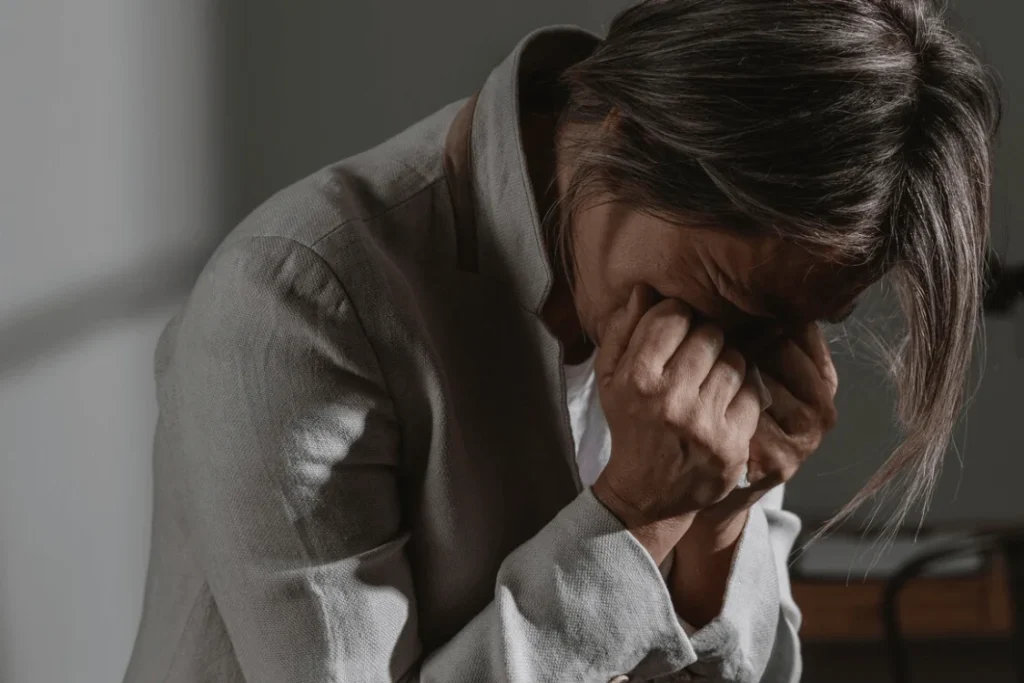
Therapy for Hallucinogen Addiction: Effective Treatment Options and Recovery Strategies
Therapy for hallucinogen addiction helps address the effects these substances have on thoughts, behavior, and daily functioning. It involves regular therapy sessions with a trained professional who can support you in understanding patterns of substance use, emotional triggers, and persistent psychological symptoms.
It can also support change by helping you process past experiences, manage stress, and make decisions that support your mental health.
Understanding Hallucinogen Addiction
Hallucinogen addiction can interfere with how your brain processes information, which affects both perception and behavior. These substances are known for altering your sensory perception and disrupting your emotional balance and decision-making.
If you’re using hallucinogens more frequently, patterns of dependence may begin to form, and it becomes difficult to stop without professional support. Understanding what these substances are and how they affect your mind and body helps you recognize the early signs of a growing problem.
What are Hallucinogens?
Hallucinogens include a group of psychoactive substances that change your awareness, thoughts, and sense of reality. Each type of hallucinogen affects the brain differently, with some influencing perception more strongly than others.
For instance, a classic hallucinogen like lysergic acid diethylamide (LSD) is known for creating vivid visual and auditory distortions, while others, such as psilocybin from mushrooms or synthetic dissociative drugs like phencyclidine (PCP), can alter mood and cognition.
While some people take them seeking spiritual insight or recreation, repeated use can lead to hallucinogen abuse, psychological distress, tolerance, and risky behavior.
Signs and Symptoms of Hallucinogen Addiction
Addiction to hallucinogens may show up in several ways, both physically and behaviorally. For instance, you might notice a growing urge to use the drug frequently, even when it begins to disrupt your daily routine or relationships.
Physical signs can also include dilated pupils, sweating, nausea, or poor coordination. At the same time, psychological effects such as paranoia, confusion, or mood swings may become more common.
These may even involve episodes of hallucination. Gradually, these symptoms can intensify, and the need to escape unpleasant feelings or chase specific experiences may take priority over your responsibilities and well-being.

Evidence-Based Therapy for Hallucinogen Addiction
Therapy for hallucinogen addiction focuses on helping you manage psychological effects, develop healthier coping skills, reduce the urge to engage in substance use, and prevent relapse.
These therapeutic approaches are grounded in research and are widely used in addiction treatment programs to address emotional regulation, distorted thinking, and behavioral patterns connected to drug use.
Each method offers a different way of understanding your experience and can also support long-term changes in how you respond to stress, relationships, and internal triggers.
Cognitive Behavioral Therapy
Cognitive Behavioral Therapy (CBT) helps you understand how your thoughts influence your behaviors and emotions. In the context of hallucinogen addiction, CBT allows you to identify specific patterns, like distorted thinking or avoidance, that may lead to drug use.
During the sessions, you’ll work on replacing these patterns with healthier alternatives by challenging unhelpful beliefs and learning practical coping strategies. This process strengthens your ability to respond to stress or emotional discomfort without returning to hallucinogens.
Dialectical Behavior Therapy
Dialectical Behavior Therapy (DBT) builds on CBT but places focus on emotional regulation and acceptance. It is helpful if you experience intense mood swings or difficulty controlling impulses.
DBT introduces structured skills such as distress tolerance, mindfulness, and interpersonal effectiveness. These tools help reduce emotional reactivity and strengthen your ability to deal with difficult situations without using substances as a way to cope.
Motivational Interviewing
Motivational Interviewing (MI) focuses on resolving any inner conflict you may feel about stopping drug use. This method supports your autonomy while helping you explore the reasons behind your choices.
During sessions, the therapist encourages you to reflect on your goals and the consequences of your behavior, which can lead to a stronger personal commitment to change. MI is often used early in treatment to build motivation and increase your readiness for further therapy.
Trauma-Informed Therapy
Trauma-Informed Therapy addresses how past trauma may contribute to ongoing hallucinogen use. If you’ve lived through emotional or physical trauma, this approach helps create a setting where both safety and understanding are prioritized.
It’s useful for people dealing with both substance use and mental health concerns, as it offers insight into how trauma responses can influence behavior and reinforce patterns of hallucinogen use.
Group and Family Therapies
Group and family therapies support recovery by building connections and restoring relationships affected by hallucinogen use. Group sessions give you the chance to share experiences with others facing similar challenges, creating space for mutual learning and encouragement.
Family therapy focuses on repairing strained dynamics, improving communication, and rebuilding trust. Together, these approaches help reinforce progress and strengthen the support systems needed for your long-term hallucinogen addiction recovery.

Negative Health Effects of Hallucinogen Use
Using hallucinogens can lead to a range of physical and psychological health problems that can intensify with repeated use. Physical symptoms may include tremors, nausea, elevated heart rate, and poor coordination. Psychologically, you might experience anxiety, paranoia, or disorientation, which may escalate into distressing hallucinations.
Some people develop long-term complications such as flashbacks or Hallucinogen Persisting Perception Disorder (HPPD), which is a rare condition that causes ongoing visual disturbances and can disrupt memory, concentration, and daily functioning.
Other Hallucinogen Addiction Treatment
Beyond therapy, hallucinogen addiction treatment may include clinical care and supportive environments that help stabilize your recovery and manage difficult periods of adjustment.
Medical Detox
Medical detox ensures that hallucinogens are safely cleared from your system under professional supervision. While these drugs don’t typically cause severe physical withdrawal symptoms like other substances, such as alcohol and opioids, the emotional and psychological effects can still be significant. Detox helps minimize distress and prevents complications that may arise during early recovery.
Residential Rehab
Residential rehab offers a structured environment where you can focus entirely on recovery from hallucinogen addiction. These programs provide round-the-clock support, combining medical care with psychological therapies to address the complex effects of long-term substance use.
This setting is also beneficial if you’re dealing with co-occurring mental health issues, as it allows for consistent monitoring, stabilization, and comprehensive treatment.
Holistic Treatment
Holistic treatment can uniquely promote long-term recovery by addressing and supporting all areas of your well-being. Some of the common programs may include nutrition guidance, creative therapies, movement practices, mindfulness, and equine-assisted therapy.
This broader approach complements traditional addiction treatment and can be useful in reducing stress and emotional vulnerability that are associated with hallucinogenic drug use.

Benefits of Treatment for Hallucinogen Addiction
Treatment helps reduce the emotional and psychological effects of hallucinogen use. It supports recovery by improving your coping skills, regulating mood, and addressing triggers that are linked to your drug use.
Over time, you’ll be able to regain focus, restore daily functioning, and strengthen decision-making. Treatment also encourages healthier routines, builds supportive connections, and reinforces progress throughout the recovery process.
Discover Life Beyond Addiction at Twilight Recovery
You don’t have to keep going through the same cycle. Remember that support is available, and change is possible. Whether things have been building up for a while or feel like they’ve hit all at once, now is a good time to start exploring what’s next.
Our treatment at Twilight Recovery offers guidance, care, and space to work through what’s been weighing you down. Reach out to us and begin something different.
Frequently Asked Questions
What Role Does Psychotherapy Play in Treating Hallucinogen Addiction?
Psychotherapy addresses the psychological and emotional effects of hallucinogen use. It also helps you identify the underlying cause of substance use and provides you with essential tools to deal with triggers and stress of daily life.
What are the Effective Treatment Options for Hallucinogen Addiction?
Effective options include evidence-based therapies like CBT and DBT, medical detox, residential rehab, and holistic treatment. Each option targets both emotional triggers and physical recovery during addiction treatment.
Are there Medications Approved for Treating Addiction to Hallucinogens?
While there are no medications currently FDA-approved specifically for hallucinogen addiction, supportive medications can be used to manage anxiety, sleep, or co-occurring mental health disorders during recovery.
How Do Support Groups Aid in Recovery from Hallucinogen Use Disorder?
Support groups reduce isolation and encourage accountability. They're typically part of a comprehensive addiction recovery plan and help reinforce the lessons learned in therapy while connecting with others with similar experiences.
How Long Does Therapy for Hallucinogen Addiction Take Effect?
Although progress may vary, many people begin to notice changes within a few weeks of consistent therapy sessions.
What Lifestyle Changes are Recommended to Recover from Hallucinogen Addiction?
Some of the most commonly recommended changes include avoiding triggers, improving sleep, staying active, eating well, and participating in group support. These adjustments help protect your physical and mental health and reduce the likelihood of returning to hallucinogen use.

